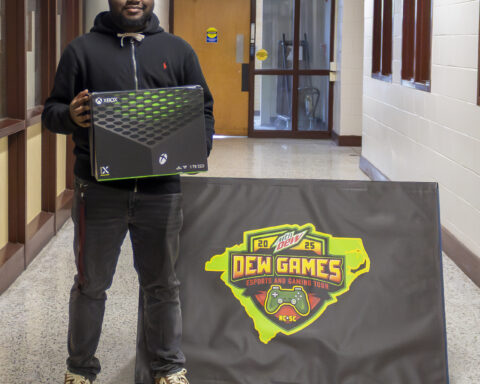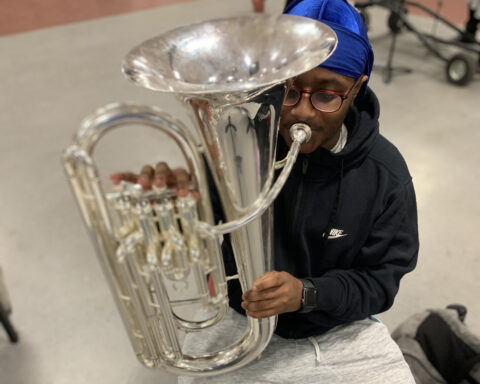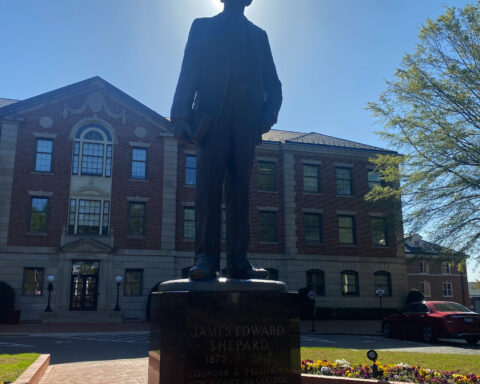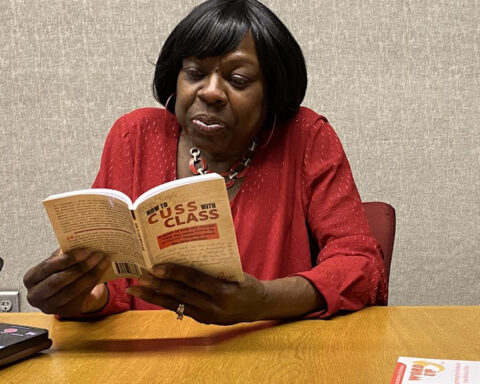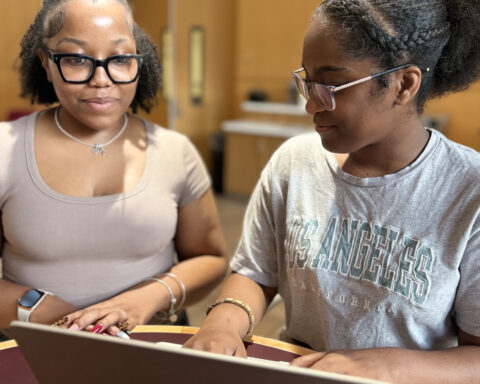N.C. Central University’s Political Science Club hosted N.C. State Rep. Zack Hawkins and N.C. State Sen. Natalie Murdock on campus to engage with students on Monday evening.
The event, “How to Stay Civically Engaged After the Election,” offered a Socratic seminar for students to speak openly about their concerns with the current political climate.
Hawkins, Murdock and about 15 students discussed the removal of Diversity, Equity and Inclusion policies in the federal government and private businesses, federal and state policy shifts, and methods of engagement with their local and state governments.
“There’s nothing wrong with taking charge with actions that directly affect your life,” Hawkins said, who has served four terms in the N.C. House.
DEI initiatives have been under fire from the Trump administration since President Donald Trump took office last month.
DEI, a hiring method adopted by many businesses and the federal government, seeks to reduce discrimination in the hiring process. DEI initiatives have helped racial minorities, women, veterans and those with disabilities.
Murdock, who has served as a N.C. state senator since 2020, said that she challenges those opposed to DEI initiatives to say “Diversity, Equity and Inclusion” rather than its abbreviated form, DEI, to make people understand what the abbreviation means.
“Is it the diversity, equity or inclusion that makes you uncomfortable?” Murdock said. “Is it the disabled folks you don’t care for? Is it the women?”
One student expressed her uncertainties about she and her siblings’ futures as college students, not knowing if their funding will be considered DEI efforts.
Hawkins told students not to worry about HBCUs’ funding being gutted. However, he did acknowledge that scholarship programs may be threatened.
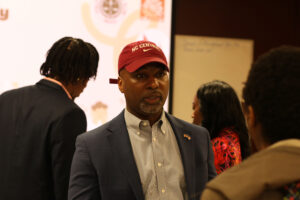
This month, the Department of Agriculture announced that it halted funding for the 1890 National Scholars Program, a scholarship for students from underserved areas that seek to study an agriculture-related major at 1890 land grant schools—which are HBCUs.
Murdock said that the Legislative Black Caucus, which she is executive board member of, contacted the USDA to advocate for the return of the program.
On Feb. 25, the USDA website announced that the program has been reinstated and is currently accepting applications.
Hawkins, a member of the bipartisan HBCU Caucus, said he understands the local impact of HBCUs. As a member of the caucus, he said that he advocates for NCCU and keeps representatives aware of the impacts HBCUs will face when voting on bills.
Hawkins told students that many politicians may often agree with students’ opinions but have to play the “political game” and don’t voice their true opinions.
“This is your civil rights moment,” Hawkins said, adding that sometimes politicians need a push from students to take action.
Devin Freeman, a political science senior, also spoke to students. He encouraged them to get to know their local politicians and organize themselves on campus for specific policy issues.
Murdock emphasized the importance of collaboration when taking issues to the government. She recounted a time as a UNC Chapel Hill student when she helped organize a counter-protest against the Ku Klux Klan, resulting in thousands of students from neighboring universities turning out.
“And this was before Facebook,” Murdock said. “Look at all the organizing you can do online. You all can organize very quickly.”
One student asked how to pressure the government as young people. Murdock and Hawkins insisted that being young is nothing but an advantage.
“You’re the largest generation. There were people that were in their twenties, [like] John Lewis, that had not lived [a long life] either,” he said. “Sometimes, living too much life puts you in a space where you’re more mild and less radical on things and scared because you have more to lose.”
Jordan Knapper, a political science freshman, said that he was happy that he had the opportunity to interact with politicians for the first time. He also said that after attending the event, he will make a stronger effort to post information on civic engagement and go “door to door.”
“There are people that don’t have social media, so it’s important that you want to reach everyone,” Knapper said. “[When] listening to the state legislators talk, I noticed that everyone [is] passionate about certain social issues, but progress isn’t made until we’re all on the same accord.”



